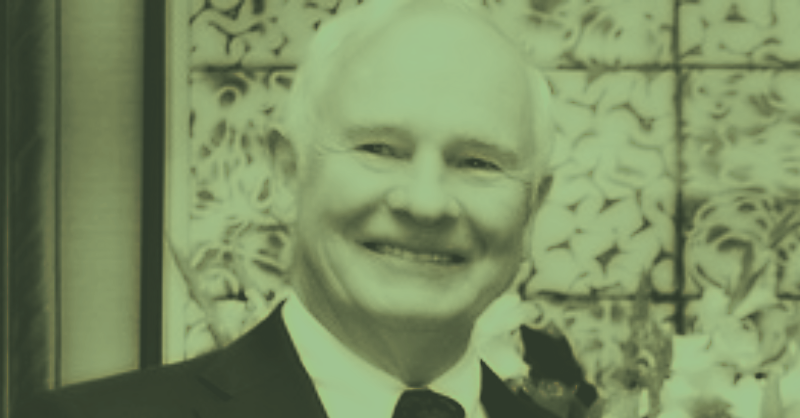
STEVE PARKER
Disney Is Failing And That's A Good Thing
Failing at the box office, at their theme parks and with their streaming service, Disney's nonsense has finally caught up.
This website uses cookies to ensure that you have the best possible experience when visiting the website. View our privacy policy for more information about this. To accept the use of non-essential cookies, please click "I agree"


My mom doesn’t like what she sees as modern “Indian laziness.” Like many Elders, she grew up working hard and never had an entitlement attitude. Many years ago, she gave me this advice: 'The bank should rent a van and load it up with all the healthy young people who don’t want to get a full-time job or go to school-all the lazy asses-and fly them to Iraq and drop them off. All the ones that make it back on their own are the keepers.'” – Rez Rules
I once asked a woman what her adult grandson was doing. She said, “Being a couch warrior”. When I asked what that meant, she replied, “He’s lying around on the couch all day waiting for the next roadblock, then he’ll jump up and put his camo pants on.” I told her if he wants to be a warrior, he should get his lazy butt in a job and feed himself and help pay the electric bill that keeps the TV on all day rather than depending on his gramma to pay the bills. A real warrior gets up early and works every day and keeps the Rez clean-especially their gramma’s house and yard. – Rez Rules
When I asked my gramma what she remembered about kids being sent to residential school, she said, “I would see some parents dragging their kids crying to the train or bus pushing their kids away.” I asked, why would parents do that to their kids? My gramma replied, “So they could go drinking.” – Rez Rules
In Canada from the late 1800s to the 1990s, some 150,000 children were taken from their families and sent off to residential schools. The Truth and Reconciliation Commission estimates that over four thousand of them died while at these schools, but the exact number will never be known because no one (government or church) was really keeping count – no one cared. Many of the children were buried in unmarked graves, as the church and the federal government had no shame in not providing a proper burial…
In May of 2021, the skeletal remains of 215 children were discovered at the site of the Kamloops Indian Residential School. Canada lowered its flags and all levels of government offered prayers and sympathy. I have had enough of nice gestures for the day or the week – I want a full criminal investigation. Those unmarked graves should be declared a crime scene. What would Canada and the RCMP do if the remains of even two white children were found? The children that were by Canadian law sent to residential schools were not lost, they were stolen. It is well documented in the final report of the Truth and Reconciliation Commission that over four thousand Native children died at residential schools across Canada. – Rez Rules
In the book Descendants of Warriors by Kamao Cappo, there is a section I very much agree with, which reads:
There has been talk about our people first needing nurturing and healing before we can properly address our economic developments issues…one would need to imagine 200 years ago and a young man with a family sitting in the teepee and he refuses to go out and hunt buffalo with the other men because he feels he needs nurturing or healing first. The point is self-explanatory, in that the men would have to fulfill their function of going out and providing for the family and only later in their free time would they seek out an Elder for guidance or they would attend a ceremony to assist themselves. – Rez Rules
According to recent estimates, forty thousand Native kids are in the child welfare system in Canada. That is more than half the total number of kids in care in the country – yet Indigenous children make up only 7% of Canada’s child population. – Rez Rules
I have noticed most cab drivers have an accent and are people of colour, so I ask, “Where did you come from?” Usually, it’s some poor overseas country. Many have only been in the country for a few years, and yet these newcomers have somehow internalized the image of the “Lazy Drunken Indian who gets everything free from the government.” How can this be?
The country they were raised in did not embed this myth in their mind. So where do so many recently arrived cab drivers learn this? The fact is, there is too much racism in every Canadian and American city. The fact is, too many Canadians and Americans don’t know the real truth of their country’s origin and history. Most people’s knowledge of Indigenous people comes from John Wayne movies or the news – for example, when Natives get pushed to the limit and put up a roadblock to protest. – Rez Rules

STEVE PARKER
Failing at the box office, at their theme parks and with their streaming service, Disney's nonsense has finally caught up.

RYAN TYLER
Sinking inflation and better unemployment numbers could fool Canadians into seeing Liberals as successful.

RYAN TYLER
When compared to Putin's invasion of Ukraine, the Iraq War looks more like American theatrics.

DEVON KASH
Concerns about people having their incomes cut off for wrong-think under a UBI are legitimate.

GRANT JOHNSON
She beat all the odds and won against the NDP's smears, but will she use her four years wisely?

NICK EDWARD
Weaponized Pride has created a more hostile environment for the LGBTQ movement.

ALLAN RAY
A hypothetical discussion is being had among some fringe activists and academics about erasing the word.

RYAN TYLER
Since 1977, conservatives have been outnumbered in Manitoba. They need to make a big decision.

ALLAN RAY
The former governor general has proved himself a Liberal crony.

RYAN TYLER
They don't deserve our forgiveness.

DEVON KASH
Carla Beck hasn't managed to stir up confidence or enthusiasm among the party's core base.